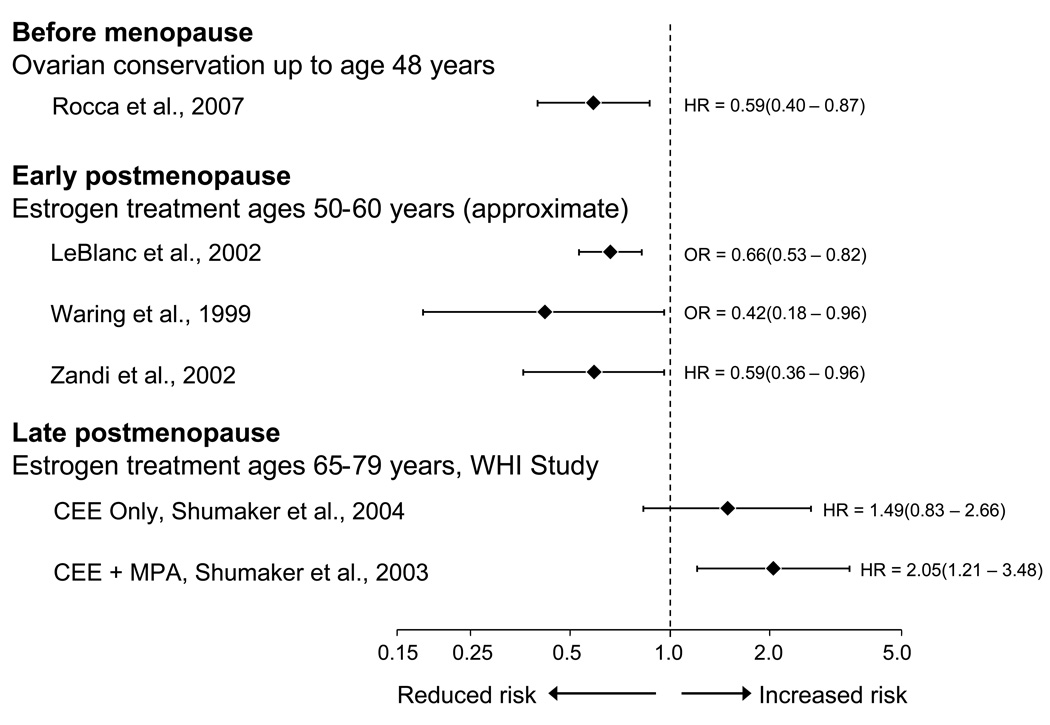Figure 2.
The effect of estrogen on the risk of cognitive decline or dementia varies with age, type of menopause, and stage of menopause (relative risk estimated by an odds ratio or a hazard ratio and 95% confidence intervals; logarithmic scale). Women with ovarian conservation before menopause (most commonly before age 50 years) have a reduced long-term risk of cognitive decline or dementia compared to women who underwent bilateral oophorectomy. Treatment with estrogen in the early postmenopausal phase (most commonly at ages 50–60 years) is associated with a reduced long-term risk of cognitive decline or dementia. However, initiation of estrogen treatment in the late postmenopausal phase (ages 65–79 years) is associated with an increased risk of cognitive impairment or dementia. CEE = conjugated equine estrogen; HR = hazard ratio; MPA = medroxy progesterone acetate; OR = odds ratio; WHI = Women’s Health Initiative Study [9, 13–17].

